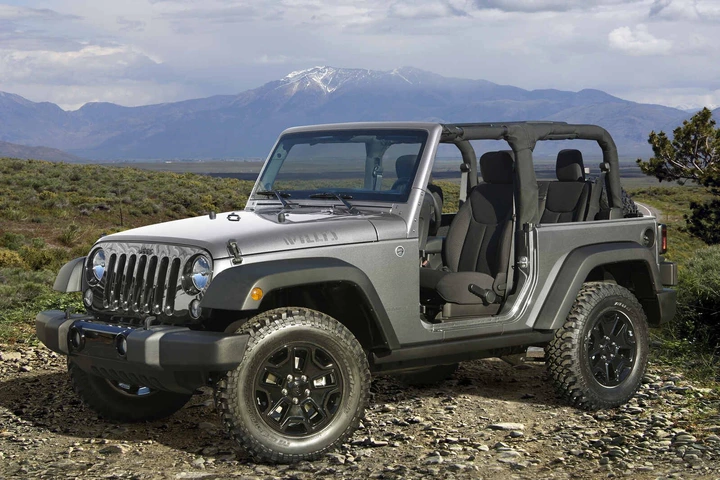How many miles can you expect a Jeep Wrangler to last?
Experts define "high" mileage for a Jeep Wrangler, along with typical issues that owners may encounter.

View pictures in App save up to 80% data.
The Jeep Wrangler is a beloved icon of American driving. Known for its off-road capabilities and rugged design, it’s a vehicle built to handle diverse terrains, from city streets to rocky trails. If you’re thinking about purchasing a used Wrangler, one of the first questions you might ask is, “How long will it last?” The good news is that a well-maintained Jeep Wrangler can last an impressive 200,000 to 300,000 miles. For some dedicated owners, these numbers can even climb higher.
With diligent maintenance, a Wrangler can last anywhere from 15 to 20 years or even longer. It's essential to keep up with regular upkeep, including oil changes, tire rotations, and promptly addressing any signs of wear and tear. While Jeep Wranglers are designed for durability, they are not immune to problems. Being aware of typical issues and recognizing warning signs can help you avoid expensive repairs and maximize the lifespan of this tough vehicle.
What is regarded as high mileage for a Jeep Wrangler?
For a lot of vehicles, the phrase “high mileage” is typically associated with around 100,000 miles. Jeep Wranglers, on the other hand, are designed with longevity in mind, so high mileage usually begins around 150,000 miles. It's important to note that a Wrangler with 150,000 miles isn't necessarily nearing the end of its lifespan, nor does a model with fewer than 150K miles automatically indicate it's in excellent condition. Numerous Wranglers can keep performing reliably well past that point, especially if they have been properly maintained. However, it’s also true that some may not endure as long.
When looking to purchase a pre-owned Wrangler, it's crucial to examine the maintenance history. A Jeep that has 120,000 miles but comes with an impeccable service record could be a more reliable option than one with 80,000 miles that has been poorly maintained. Additionally, take into account the nature of the mileage. City driving, which involves regular stops, can lead to quicker wear and tear on parts compared to driving on the highway.
What are some tips to extend the lifespan of my Jeep Wrangler?
Maintaining your Wrangler's longevity on the road involves some dedication. Here are a few suggestions to help you prolong its life:
Stick to the maintenance schedule: Jeep provides a maintenance schedule in the owner’s manual. Follow it closely.
Use quality parts: When replacing parts, opt for OEM (Original Equipment Manufacturer) components or high-quality aftermarket options.
Inspect regularly: Perform visual inspections of the tires, brakes, and undercarriage to catch wear early.
Avoid excessive modifications: While lifting a Jeep and adding larger tires is common, extreme modifications can stress the engine and drivetrain.
Rust prevention: Rust can be a Jeep killer. Regularly wash your Wrangler, especially the undercarriage, to remove salt and debris.
Frequent Problems Encountered with Jeep Wranglers
Jeep Wranglers are known for their durability, but they do come with some drawbacks. Throughout the years, various models have gained notoriety for particular problems. Being aware of these can assist you in preparing for upkeep and any necessary repairs.
“死亡摆动”
A notorious problem associated with the Wrangler is known as the "death wobble." This phenomenon refers to a severe shaking in the steering that can happen at specific speeds, typically caused by degraded suspension or steering parts. Although it can be quite startling, it is generally resolved by swapping out bushings, ball joints, or track bars.
Issues with transmission
Certain Wrangler models, especially those manufactured between 2007 and 2014, have encountered problems with their transmissions. The automatic transmissions in the earlier JK models (2007–2011) were especially susceptible to overheating and experiencing failures when subjected to heavy usage.
Oil spills
Since 2014, there have been reports of oil cooler failures in various models. If these leaks are not addressed promptly, they can lead to serious engine damage.
Problems with electrical systems
Owners of 2012 Wranglers have experienced problems related to the TIPM (Totally Integrated Power Module), leading to m